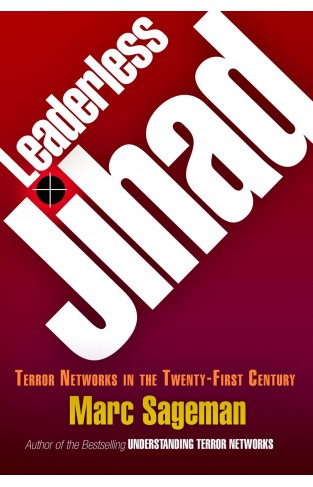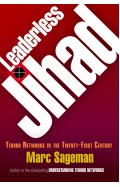Leaderless Jihad - Terror Networks in the Twenty-First Century
By: Marc Sageman
-
Rs 976.50
- Rs 1,395.00
- 30%
You save Rs 418.50.
Due to constant currency fluctuation, prices are subject to change with or without notice.
Leaderless Jihad - Terror Networks in the Twenty-First Century
By: Marc Sageman
Rs 976.50 Rs 1,395.00 Ex Tax :Rs 976.50
Zubin Mehta: A Musical Journey (An Authorized Biography)
By: VOID - Bakhtiar K. Dadabhoy
Rs 630.00 Rs 1,050.00 Ex Tax :Rs 630.00
The Origins of Political Order From Prehuman Times to the French RevolutioN
By: Francis Fukuyama
Rs 3,895.00 Ex Tax :Rs 3,895.00
Battles Half Won : Indias Improbable Democracy
By: Ashutosh Varshney
Rs 3,356.00 Rs 4,195.00 Ex Tax :Rs 3,356.00
Curzon's India: Networks of Colonial Governance, 1899-1905
By: Dhara Anjaria
Rs 597.00 Rs 995.00 Ex Tax :Rs 597.00
A Brief History of The Third Reich: The Rise and Fall of the Nazis - Paperback
By: Martyn Whittock
Rs 1,995.00 Ex Tax :Rs 1,995.00
US Policy in Afghanistan and Iraq
By: Seyom Brown & Robert H. Scales
Rs 1,677.00 Rs 2,795.00 Ex Tax :Rs 1,677.00
The Peacemakers: India and the Quest for One World
By: Manu Bhagwan
Rs 680.00 Rs 850.00 Ex Tax :Rs 680.00
The Invisible Bridge: The Fall of Nixon and the Rise of Reagan
By: Rick Perlstein
Rs 1,720.00 Rs 2,150.00 Ex Tax :Rs 1,720.00
No recently viewed books available at the moment.
Zubin Mehta: A Musical Journey (An Authorized Biography)
By: VOID - Bakhtiar K. Dadabhoy
Rs 630.00 Rs 1,050.00 Ex Tax :Rs 630.00
Leaderless Jihad - Terror Networks in the Twenty-First Century
By: Marc Sageman
Rs 976.50 Rs 1,395.00 Ex Tax :Rs 976.50














-120x187.jpg?q6)






-120x187.jpg?q6)







